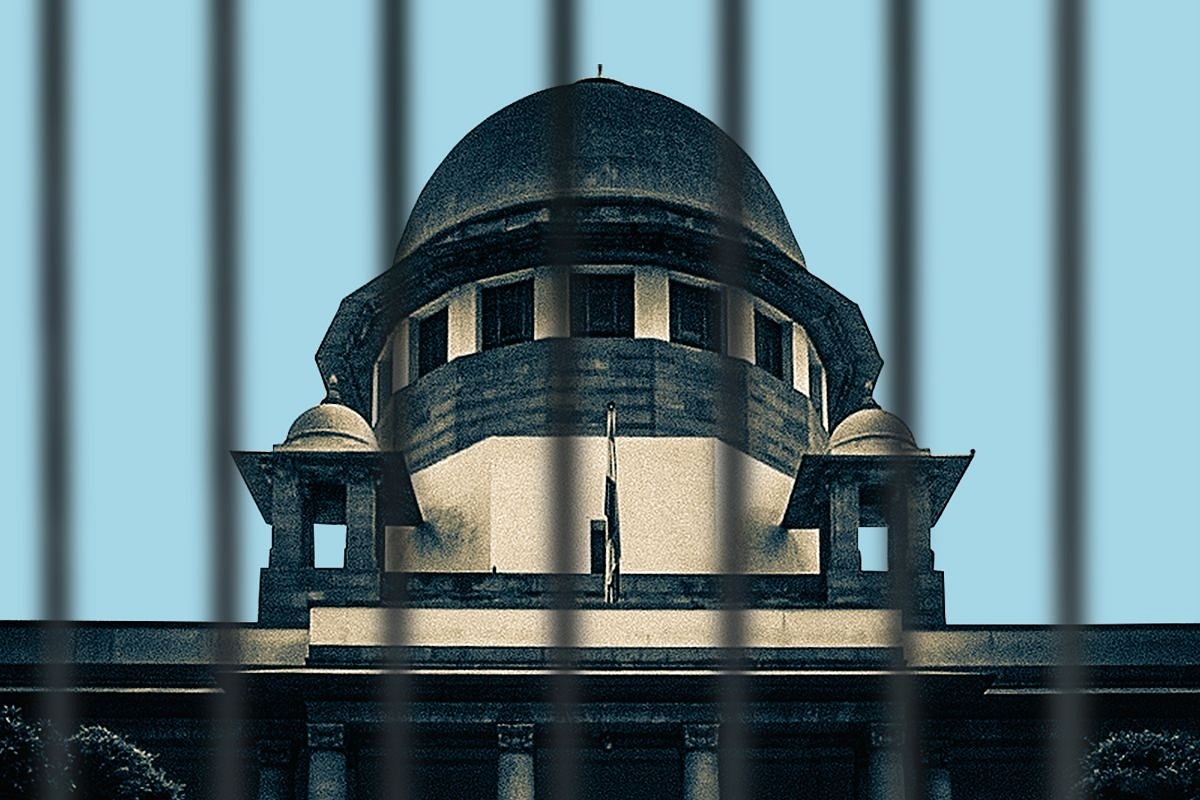News Brief
SC Pronounces 'Talaq-e-Hasan' 'Not So Improper', Petitioner Seeks Practice To Be Declared 'Unconstitutional'
- The apex court prima facie observed that the Muslim personal law practice of 'talaq-e-hasan' is "not so improper".

The Supreme Court of India. (SAJAD HUSSAIN/AFP/Getty Images)
Opening a new debate on the validity of Muslim personal laws in a constitutional democracy, the Supreme Court said the practice of divorce in Muslims through 'talaq-e-hasan', a practice where the husband says 'talaq' once a month over a period of three months is not akin to triple talaq. It added that the Muslim women also have an option of 'khula', a practice where woman could seek divorce from her husband.
A bench of justices S K Kaul and M M Sundresh said if husband and wife cannot live together, it can also grant divorce on the ground of irretrievable breakdown under Article 142 of the Constitution.
The top court was hearing a plea that seeks to declare 'talaq-e-hasan' and all other forms of "unilateral extra-judicial talaq as void and unconstitutional". The petitioners have called these extra-judicial practices arbitrary, irrational, and violative of fundamental rights.
The case has been filed by Ghaziabad resident Benazeer Heena, who claimed to be a victim of 'talaq-e-hasan'. During the hearing, the bench asked the petitioner's counsel if she would be open to divorce by mutual consent if 'mehar' (gift given in cash or kind by groom to bride) was taken care of?
Justice Kaul, the presiding judge on the bench, said, “Prima Facie this (talaq-e-hasan) is not so improper. Women also have an option. Khula is there. Prima facie I don't agree with petitioners. I don't want this to become an agenda for any other reason”.
The apex court will now hear the matter on 29 August.
The petition also sought a direction to the Centre to frame guidelines for neutral and uniform grounds of divorce and procedure for all citizens.
In talaq-e-hasan, divorce gets formalised after the third utterance in the third month if cohabitation is not resumed during this period. However, if cohabitation resumes after the first or second utterance of talaq, the parties are assumed to have reconciled and the first or second utterances of talaq are deemed invalid.
In 2019, Parliament passed the Muslim Women (Protection of Rights on Marriage) Act, banning the practice of instant triple talaq or 'talaq-e-biddat', wherein a husband could divorce his wife by uttering talaq three times.
(With inputs from PTI)
Introducing ElectionsHQ + 50 Ground Reports Project
The 2024 elections might seem easy to guess, but there are some important questions that shouldn't be missed.
Do freebies still sway voters? Do people prioritise infrastructure when voting? How will Punjab vote?
The answers to these questions provide great insights into where we, as a country, are headed in the years to come.
Swarajya is starting a project with an aim to do 50 solid ground stories and a smart commentary service on WhatsApp, a one-of-a-kind. We'd love your support during this election season.
Click below to contribute.
Latest